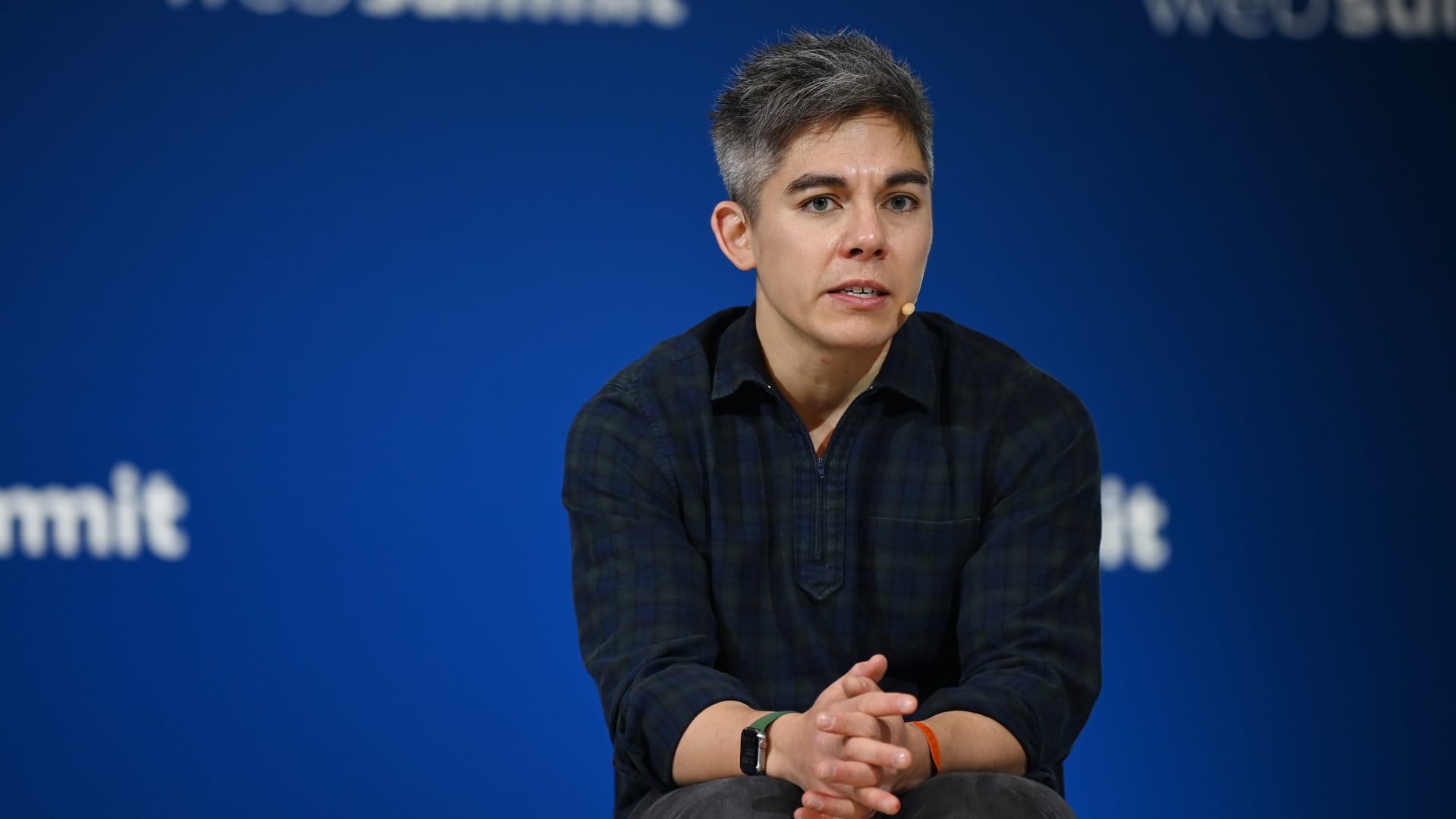GoCardless, the British fintech company backed by Alphabet’s venture capital fund GV, is considering more mergers and acquisitions as it looks to grow market share in the highly competitive online payments space.
“We’re constantly reviewing the market for opportunities that will accelerate our growth, add value to our core payment platform or strengthen our open banking proposition,” Hiroki Takeuchi, GoCardless’ CEO and co-founder, told CNBC in an exclusive interview.
Last year, GoCardless acquired the Latvian open banking startup Nordigen in its first major acquisition. Financial information was not disclosed. The deal was aimed at expanding access to bank account information for GoCardless’ 85,000 customers globally.
“Will we do more of that? We’re very open minded, not just for us but in general,” Takeuchi said.
“In this space I expect there’s going to be a lot of opportunities for consolidation and M&A [mergers and acquisitions], especially in the context that some companies in this space are going to be well positioned to survive these challenging conditions and grow stronger.”
GoCardless is one of the darlings of the British fintech industry. Co-founded by Takeuchi, a former Monzo co-founder, in 2011, the business processes more than $30 billion of payments across over 30 countries in a single year.
The U.K. fintech industry attracted $2.9 billion in the first six months of 2023. That was down 37% from last year, as investors turned their backs on loss-making, high-growth startups in response to the worsening macroeconomic situation.
Britain is, nevertheless, among the standout countries globally when it comes to the might of its fintech industry. According to CNBC analysis of data from Statista, the country is the second-largest market for so-called fintech “unicorns,” or firms that command a valuation of $1 billion or more.
Changing market conditions
Takeuchi pointed to Visa’s $2.2 billion acquisition of Swedish open banking fintech Tink in 2021 as an example of the kinds of deals to watch out for in the coming months. In August, London-based fintech Rapyd acquired PayU GPO, a huge slice of the payments business PayU that focuses on emerging markets, from Dutch tech investment firm Prosus for $610 million.
“We’ve seen market conditions change over the last 18 to 24 months,” he said. “What we’ve been really focused on is making sure that core offering we’re bringing to merchants is as good as it can be and that we’re staying more focused on a few key set of things and getting them right to continue to drive the growth of the business. Open banking is one thing and definitely something we think is really important.”
GoCardless made revenues of £70.4 million ($85.9 million) in the 2022 fiscal year ended 2022, up 3.5% year-over-year. However, it recorded a loss of £62.7 million for the year, marking a 38% increase from its £46.8 million loss in 2021.
GoCardless’ technology allows firms to collect direct debit payments from consumers. These payments are typically for subscriptions — think of your gym memberships, news subscriptions, and monthly meal kit orders.
Without naming any acquisition targets of interest, Takeuchi suggested that the frailty of some players in the payments industry would leave them exposed to corporate takeovers.
“Some companies, they’re not going to be set up for the longer term. The ability to fundraise in this environment is much harder,” Takeuchi said. “One of the things that is important in this space to achieve is you have to get to significant scale. I know how much it costs to get to that scale because we’ve invested for 10 years.”
He added, “There will be opportunities for us. We’re open minded. The important thing is that we’re very disciplined on it being aligned to that strategy we have.”
Takeuchi said that the integration with Nordigen was “going very well” and that the company had invested a lot of time investing in the smooth combination of Nordigen’s teams with GoCardless.
GoCardless plans to use Nordigen’s technology to offer variable recurring payments, a type of payment similar to direct debit that gives third-party firms the ability to carry out a series of payments at variable amounts and intervals on behalf of bank users.
Previously, it was only possible for third-party payment providers to initiate single, one-off payments or a series of recurring transactions with the same amount and frequency, known as standing orders.
What is open banking?
Open banking is a set of nascent technology standards that allows third-party technology companies to obtain access to account information from large incumbent banks and use that data to offer new services.
It has enabled fintech firms like Coinbase and Robinhood to seamlessly connect to customers’ bank accounts to allow them to top up their accounts and make payments.
That can include money management apps that give consumers more visibility over their spending, or lending products that determine a user’s creditworthiness based on their past spending decisions rather than going through the established credit reference agencies.
Takeuchi said that GoCardless has also received interest from payment service providers (PSPs) about plugging into its technology to add the option of direct debit capabilities. That’s as businesses are beginning to become more selective about which providers they use for their payment needs due to tighter macroeconomic conditions.
Half of businesses use three or more PSPs for their payment needs, according to GoCardless’ own data, while one in 10 firms use a minimum of five providers. Cost reduction is the top priority for businesses with two thirds of companies surveyed by GoCardless looking to reduce the number of PSPs they use and 34% planning to do so in the next 12 months.
Takeuchi declined to comment on which payment service providers the firm was in contact with, but cited Stripe and Adyen as examples of the kinds of companies that would fall under the umbrella of PSPs.
